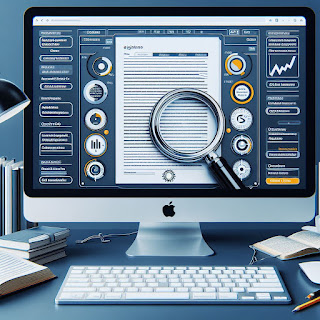Plagiarism in the Digital Wild West: Protecting Your Content and Avoiding Trouble Online
Think of it like this: imagine spending hours crafting a unique and insightful blog post, only to find another website using your words verbatim, without giving you credit. Not cool, right? That's why understanding plagiarism and how to combat it is crucial for anyone creating content online, especially high school students like yourselves.
Why Does Plagiarism Matter?
Plagiarism isn't just about being a good digital citizen (although that's important too!). Here's why it matters:
- Ethical Issues: It's simply wrong to take someone else's work and claim it as your own. It's a violation of their intellectual property and undermines their efforts.
- Academic Repercussions: In high school and beyond, plagiarism can lead to serious consequences, like failing grades, disciplinary action, or even expulsion.
- SEO Woes: Search engines like Google frown upon duplicate content. If your website is caught plagiarizing, it can negatively impact your search ranking, making it harder for people to find your work.
- Legal Consequences: In extreme cases, blatant plagiarism can even result in legal repercussions. While this might be rare for high school projects, it's important to be aware of the potential consequences.
The Many Faces of Plagiarism: It's Not Just Copy-Pasting
While outright copying and pasting someone else's work is the most obvious form of plagiarism, it's not the only one. Here are some other sneaky forms to be aware of:
- Paraphrasing without attribution: You might rephrase someone else's sentences or ideas, but if you don't properly cite the source, it's still plagiarism.
- Mosaic plagiarism: This involves piecing together snippets from different sources without proper citation, creating a new "work" that's still a patchwork of plagiarism.
- Self-plagiarism: Reusing significant portions of your own previous work without proper citation can also be considered plagiarism, especially in academic settings.
How to Avoid Plagiarism and Stay Ethical Online
Now that you understand the importance of avoiding plagiarism, here are some practical tips to help you navigate the digital world ethically:
- Do your research: Before starting any project, gather information from various credible sources. This could involve books, academic journals, reputable websites, and even qualified experts.
- Take good notes: As you gather information, paraphrase key points in your own words and keep track of the source material. This will help you avoid unintentional plagiarism later.
- Cite your sources properly: Depending on your project requirements, you might need to use different citation styles like MLA or APA. Familiarize yourself with them and use citation generators or online resources if needed.
- Use your own voice: Don't be afraid to express yourself in your own words. Even when referencing existing work, strive to add your own analysis, insights, or interpretation.
- Paraphrase responsibly: If you do paraphrase, make sure you understand the original material fully and rephrase it significantly, ensuring it's genuinely in your own words.
- Use plagiarism checkers: While not foolproof, online plagiarism checkers can be helpful tools to identify potential areas where you might have unintentionally missed proper citation. Remember, these checkers are just a safety net, not a replacement for critical thinking and proper research practices.
Addressing Plagiarism: When You Encounter Someone Else's Work
What if you suspect someone else has plagiarized your work? Here are some steps you can take:
- Contact the person directly: In a polite and professional manner, reach out to the individual or website and explain the situation. Provide evidence of your original work and politely request them to remove the plagiarized content and credit you properly.
- Report the issue: Depending on the platform where you found the plagiarized content, you might have the option to report the issue to the website's administrators or social media platform.
It's important to remember that the goal isn't to start online feuds, but to educate and raise awareness about plagiarism. By approaching the situation calmly and professionally, you can often resolve the issue amicably.
The Bottom Line: Be Original, Be Ethical
Creating original content takes time, effort, and creativity. By understanding and avoiding plagiarism, you protect both your own work and the work of others. Remember, the internet rewards originality and ethical practices. So, put your thinking cap on, tap into your creativity, and create content that truly shines with your own unique voice and perspective. After all, the digital world needs your unique spark, not just copies of existing flames.
Here are some additional points to consider:
- Seek help if needed: If you're unsure about proper citation practices or have difficulty paraphrasing effectively, don't hesitate to seek help from your teachers, librarians, or online resources.
- Develop strong research skills: The better you become at researching and gathering information, the less likely you are to fall into the trap of unintentional plagiarism.
- Embrace ethical practices: By consistently adhering to ethical principles in your online interactions, you contribute to creating a more positive and respectful digital environment for everyone.
Remember, originality and ethical conduct are not just academic requirements; they're valuable skills that will serve you well throughout your life, online and offline. So, go forth and explore the digital world with confidence, creativity, and a strong sense of ethical responsibility!





Comments
Post a Comment